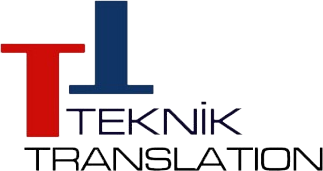In today’s world, interlanguage and intercultural dialogue have increased and developed remarkably. The number of translation education institutions in Turkey is increasing rapidly. What you need to be a good interpreter.
Interpreting is a profession that requires interaction between foreign cultures. In the changing world conditions, the prospect of translation has increased by a factor of two, and the scope of translation has expanded. The ability to respond to the needs that arise under these circumstances requires a more comprehensive translation education. For this reason, the translation has gained more importance and accordingly it has reached a point where the necessity of translation education can not be denied. It has become compulsory to introduce new approaches to the content of translation education so that the translation can respond adequately and fill the gap.
The Importance of Translator Training
Everyone knows the language but everyone can not convey what they know. Translation training is a big way to transfer information. The aim of the translator training is to help the translator candidate to understand the source message and to re-express it on the target language.
The positive aspect of the translation course is the grammar knowledge the students have gained. Translation training is also an important way of learning from the technical side of the language. In order to be able to examine both the texts on which the learner is working and to make a correct transfer, he must know the grammar of both languages well.
If the size of the translation activity is considered in today’s conditions, the conditions of this activity market and the improvement of existing conditions will only be possible with an education at the academic level. The best way to learn is to “practice under the supervision of an expert”. Translation is a complete concentration work. Experience does not make sense without education. Therefore, thanks to education alone, it is difficult for translators who expect to be qualified to succeed. Translation education also has an important place in foreign language teaching. Whether it is translation in foreign language teaching, direct use as an objective for their own teaching, or as a tool in foreign language teaching, students will make great contributions to language use and the development of their analytical skills. At the same time, translation education provides students with the understanding of the intricacies of the languages they are working on and the whole cultural texture. This will present important implications for the future professional practice of the student.
It is not wrong to say that in the present day when foreign language proficiency is an important gain, the multitude of areas where this profession can be applied requires translation in every field, and therefore in every profession, without any precaution of what the graduates are. For the translation profession, which helps other sectors or is itself a sector, educating translators according to the content of the work done will increase the amount of paid work. Educating interpreters according to the needs will be a more appropriate choice both in terms of training received, in terms of finding a job and in terms of the institution being studied. Since the need can not be determined according to the given education, it will be a more correct approach to determine the education according to needs.
Up to this point, we have mentioned the importance of having a certain naval navy. Not having a clear and sufficient cultural background beyond language knowledge, or failing to reflect on the work it has done, has led to serious communication problems. This responsibility also implies the necessity of taking serious training.
What is the point of translating?
Translation has always existed from the earliest moments of life, from the earliest period of a person who has developed a language to understanding. For this reason, translation has become the greatest means of humanization, the civilization of human life. A transcendental phenomenon, at all stages of human life; social, psychological and cultural development. Translation is not an activity that can be learned by experience alone.
Even if it involves a field of expertise, it is not enough to teach ‘how to translate’ alone, to gain the upper translation consciousness.
In today’s world of science, art, technology, innovations and developments pushed by boundaries, the flow of knowledge and information has become the only means of capturing all the different developments.
At this point of multi-axis and multi-centricity, the means of meeting cultures became a translation, and in this sense translation has become a much more vital phenomenon in terms of the future of our world. This is a very important tool in all intercultural dialogues in the twenty-first century, when the borders of the nations close together, multinational corporations and institutions develop rapidly,
When you are translating, you will get the dictionary help, which will be done first to find the correspondences of these words that are antagonistic. However, the use of the first meanings of words in the general dictionary poses a great danger in terms of finding the right responses of the expressions. The translator should go to a clearance between the meanings of the words in a way that is appropriate for the self-search. However, this is not an easy process.
As a result, translation is the common thread of all mankind. All of this expresses the necessity of humanitarian cohesion, and it forces people to produce solutions on common platforms. This means that different political opinions, different legal structures, different cultural backgrounds come together. At this point, there is only one language to use: translation.
When we look at the flow of history, it is noticed that rising civilizations attach importance to external relations in the first place in parallel to their ascension. In other words, parallel to the rise of each rising civilizations, it is seen that they are dealt with in a state program.


